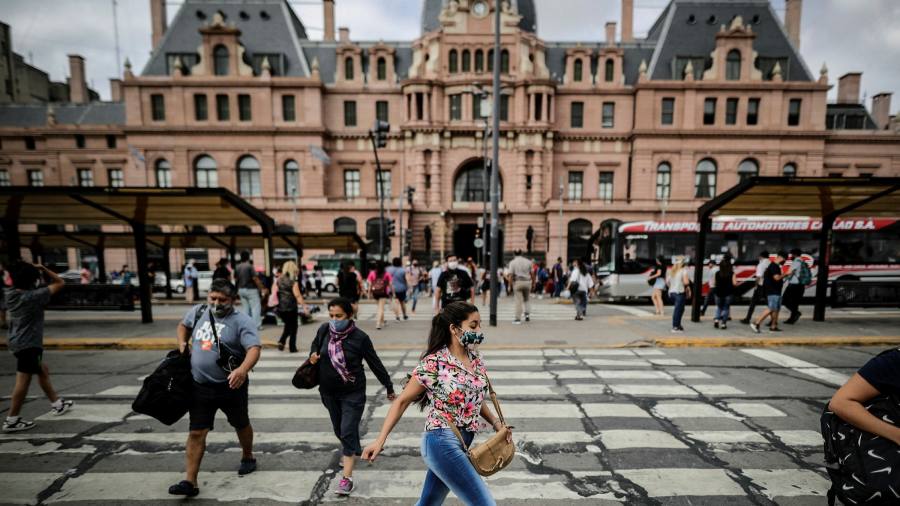[ad_1]
It should be a golden opportunity for British business post-Brexit.
Latin America once bought a third of its imports from the UK, with British companies building railways across the continent, clothing its wealthier citizens and selling machinery for its factories and ports.Â
But that was in 1870 and the ensuing 150 years have been a story of relentless decline. By 2018, less than 1 per cent of Latin America’s imports came from the UK and the region vies with sub-Saharan Africa as the least significant for UK trade globally.
It is a record that Jonathan Knott, the newly appointed UK trade commissioner for Latin America and the Caribbean, is determined to change.Â
“The opportunity is to shift the dial with British business in a significant way because we at the moment don’t do as well as we could,†he told the Financial Times in an interview.Â
The obstacles are formidable. Argentina, once Britain’s biggest trading partner in the region, has suffered a remorseless economic decline and the continuing dispute over the Falkland Islands remains an irritant. Mexico enjoys preferential trade with its North American partners and in Brazil, the biggest market, there is no strong history of commercial ties to draw on.
One of Knott’s first priorities is to improve trade agreements with the region. Continuity deals have preserved existing access for British companies but the new trade commissioner is looking to the Comprehensive and Progressive Agreement for Trans-Pacific Partnership as a key next step.
The Pacific “mega free trade agreement†brings together Australia, Canada, Japan, Malaysia, New Zealand, Singapore, Brunei and Vietnam — but also Chile, Mexico and Peru. The UK made a formal application to join at the start of February and talks are expected later this year.
“With the CPTPP . . . our companies can trade there and between those countries much, much more easily,†Knott said.
In the meantime, his team are working to dismantle non-tariff barriers which are holding back British exporters — 28 went last year — and improving access to export finance.
Among the opportunities for UK companies are green tech, agricultural tech, educational tech, life science and healthcare, as well as more traditional areas such as oil, gas, mining and defence.
But first British companies have to overcome decades of neglect. “After the [second world] war, the UK distanced itself from Latin America,†one senior envoy from the region said. “It didn’t have the resources or the strategic interest to maintain a significant presence or far less to compete with the US.â€Â
As foreign secretary, William Hague launched an initiative in 2010 to boost diplomacy, trade and investment with Latin America, which included new embassies, appointing a trade commissioner and boosting trade visits. Yet a report from the Canning House think-tank concluded 10 years later that “in terms of UK exports to the region, the results have been poorâ€.
Latin American officials complain that British companies are reluctant to invest in a long-term relationship with their countries, preferring more familiar markets in the US, Europe or Asia. “The French and the Spaniards have been much more active, have built better ties and are more willing to spend years here without selling but building a presence,†one envoy said.
Another difficulty is the limited capacity of British trade negotiators. An obvious priority for the UK would be a trade pact with the Mercosur bloc of South American nations that includes Brazil and Argentina — particularly as their recent pact with the EU faces ratification problems — but British negotiators have other priorities.
Even Latin American countries that have negotiated rollovers to existing EU deals with the UK complain that trade officials in London do not have enough time to bring them up to date because they are too busy with other regions.
Knott remains optimistic. “It’s exactly the sort of opportunity that Britain ought to be able to exploit,†he said of Latin America. “This is how a trading Britain continues to grow.â€
[ad_2]
Source link





